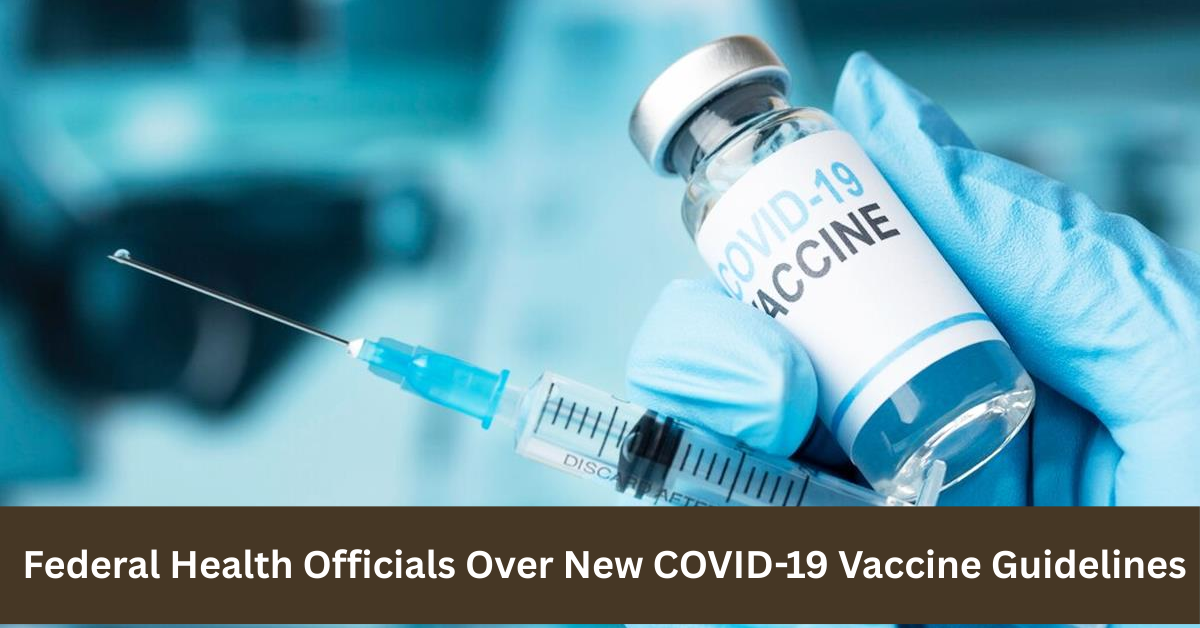The ongoing battle against COVID-19 has taken a new turn as leading medical associations publicly challenge the latest vaccination policies proposed by federal health authorities. This friction underscores a broader debate over how best to balance public safety, vaccine efficacy, and individual freedoms amid evolving pandemic conditions.
With vaccine recommendations frequently updated in response to new variants and emerging data, the discord between medical experts and government officials has intensified. Younger populations, in particular, are looking for clear guidance, making this dispute crucial to shaping public health strategies moving forward.
Background of Updated COVID-19 Vaccination Policies
Federal health agencies recently rolled out comprehensive updates to COVID-19 vaccination protocols, aiming to address variant-specific vaccine adjustments, booster shot timing, and eligibility expansions. These policies include targeted recommendations for vulnerable groups while suggesting a shift towards more personalized vaccine schedules.
The intention behind these updates is to improve vaccine effectiveness across diverse communities, promote higher booster uptake, and integrate new vaccine formulations designed to combat current and anticipated virus mutations.
Key Points of Contention Between Medical Associations and Federal Health Officials
Several prominent medical associations have expressed concerns about the speed and nature of policy implementation. They argue that some federal guidelines lack sufficient clinical data and may undermine public trust by causing confusion regarding vaccine necessity and timing.
Another major issue involves communication strategies. Medical groups emphasize that clearer, science-driven messaging is essential to combat misinformation, especially among younger adults reluctant or hesitant about booster shots. They believe federal agencies need to engage more directly with healthcare professionals to align recommendations and messaging.
Impact on Booster Shot Recommendations for Younger Populations
Updated policies have introduced nuanced booster shot recommendations that include younger age groups, reflecting the ongoing need to protect against emerging variants. However, medical associations question whether mandating boosters for lower-risk demographics is justified at this stage and caution against potential vaccine fatigue.
Young adults often perceive themselves as less vulnerable to severe COVID-19 outcomes, leading to varied vaccination intentions. Clear, evidence-based rationale for booster doses targeting this group remains critical to improving vaccine coverage and curtailing transmission.
Table Summarizing Differences in Vaccination Recommendations
| Aspect | Federal Health Policy | Medical Associations’ Position |
|---|---|---|
| Booster Eligibility | Expanded to include most adults, including younger populations | Support boosters for vulnerable but caution against universal mandates for low-risk groups |
| Vaccine Formulations | Recommend variant-targeted vaccines for booster doses | Agree on variant targeting but call for more clinical trial data before widespread use |
| Communication Strategy | General public messaging via media campaigns | Advocate for enhanced collaboration with healthcare providers for clearer guidance |
| Policy Implementation Speed | Rapid updates responding to evolving science | Urge cautious pacing to ensure data robustness and public confidence |
Effects of the Dispute on Public Perception and Vaccine Uptake
The public disagreement between medical experts and federal officials has led to some confusion, especially among younger audiences who rely heavily on trusted sources for health decisions. This discord has, at times, fueled vaccine hesitancy and skepticism, complicating efforts to maintain high vaccination rates.
Transparency, consistency, and empathy in communication are seen as vital to rebuilding confidence. Younger people often seek information through social media channels, emphasizing the need for messaging that is both scientifically accurate and relatable.
Role of Medical Associations in Shaping Vaccine Policy
Medical associations play a crucial role as intermediaries between federal agencies and frontline healthcare providers. Their collective expertise informs best practices, identifies potential gaps in policy, and advocates for patient safety and equity.
By voicing constructive critiques and collaborating on research, these groups help refine vaccination strategies to better reflect real-world challenges and diverse population needs, including those of younger generations.
Federal Officials’ Response to Criticism and Next Steps
Federal health leaders acknowledge the feedback from medical associations and have expressed commitment to ongoing dialogue and data review. Efforts are underway to enhance transparency around decision-making processes and to adjust guideline dissemination methods to be more inclusive of expert opinions.
Future updates are anticipated to integrate broader clinical evidence and stakeholder input, with an emphasis on flexible policies responsive to changing pandemic dynamics.
How This Debate Influences Future Pandemic Preparedness
The current clash over COVID-19 vaccine policies serves as a valuable case study for improving pandemic preparedness frameworks. It highlights the importance of fostering collaboration between governmental bodies and medical organizations, ensuring that health recommendations are both scientifically robust and publicly trusted.
Lessons learned will likely guide future vaccine rollouts, emergency responses, and communication campaigns, strengthening health security for all age groups.
Conclusion: Navigating the Path Forward in COVID-19 Vaccination Policy
The ongoing tension between medical associations and federal health officials illuminates the complex landscape of pandemic management amid uncertainty. While conflicts arise, they ultimately offer opportunities to refine vaccine policies and messaging, aiming to protect public health while respecting diverse perspectives.
For younger Americans, staying informed through reliable sources and seeking personalized medical advice remain key actions during this evolving situation. Collaborative efforts between experts and federal agencies will shape the success of vaccination strategies in the months ahead, helping society move closer to pandemic recovery.




